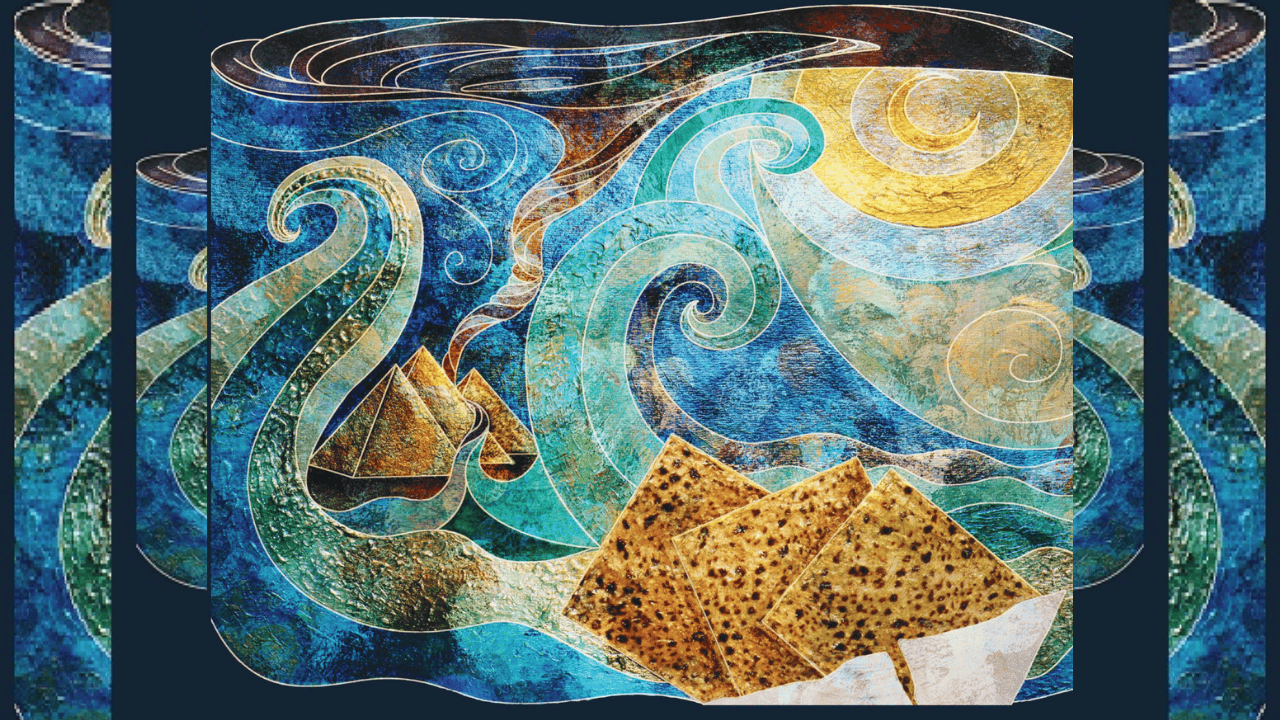Parshat Vezot HaBracha
On Simchat Torah the custom is to read the last portion of the Torah Vezot Haberacha and to immediately role it to the beginning and read from the first portion of the Torah, Bereishit, marking the beginning of a new cycle of reading the Torah. This fulfills the statement in the Zohar that “the end is wedged in the beginning and the beginning in the end.”
The final verse of the Torah reads: “And by all the strong hand and awesome power that Moses performed before the eyes of all Israel” (Deuteronomy 34:12). This verse is thus intrinsically linked to the first verse of the Torah, so much so that many Chassidic commentators take the Torah’s last verse and connect it to the Torah’s first verse – “In the beginning (bereishit) God created the heavens and the earth” – and render them as one unified idea: “Before the eyes of all Israel in the beginning God created the heavens and the earth.” Rashi translates the letter beit, the “be-” in “bereishit” (“in the beginning”), as “for the sake of,” rather than the more usual translation of the beit as “in” (“in the beginning”). He explains that God created the world “for the sake of the Torah that is called the first of His ways and for the sake of Israel that is called the first of His produce.” In that light reading the last verse of the Torah and the first verse together is understood as conveying the message that “Before the eyes of all Israel [and for the sake of the Torah and Israel] in the beginning God created the heavens and the earth” (See Orchard of Delights for a further explanation of this phenomenon).
Yet another deep connection between the end of the Torah and the beginning is the idea of blessing. Vezot Habracha, the name of the last portion of the Torah means “And this is the blessing,” as the theme of this portion is Moses’ final blessings to all of Israel and each tribe individually. How then does this connect to the concept of blessing in the beginning of the Torah? The answer comes in a somewhat whimsical explanation in the Zohar (Introduction to the Zohar, 23).
When God decided to create the world, all the letters came before Him requesting to be the first letter in the Torah. Each letter, beginning from the letter tav, the last letter of the alphabet, came before God and presented an argument that it should be first since a certain word with positive connotations started with it. God countered these arguments one by one by explaining that certain words with negative connotations also started with these letters. In this manner, God, as it were, disqualified all the letters until the letter beit presented its case that since the people of the world would praise and bless their Creator with the word baruch, blessed, it deserved the merit to be the first letter of the Torah.
Although this explanation is somewhat whimsical it teaches a profound idea that the creation is God’s ongoing blessing to His creation and His creation fulfills its ultimate meaning and potential when acknowledging God’s Presence and expressing it in praise and blessing. The root of the word “Jew” is hod, which means acknowledgment, thanks and praise. It also means “glory.” The creation, when we take the time to notice, manifests the glory, beauty and majesty of its Creator. These ideas are expressed in a real manner in the one-hundred blessings a Jew says every day. In this way, blessing, thanking and praising God permeates Jewish consciousness and action, forming the context of our experience of life.
Another link between beginnings and endings and the idea of blessing is seen in the connection between the blessings of Jacob to his children before his death and the blessings of Moses in this portion, also immediately preceding his death. When Jacob passed away a crucial transition was occurring – the nuclear family of Jacob was becoming the nation of Israel. Although his blessings came at the end of his life they were paving the way for a new beginning of the nation of Israel. Moses in a sense was closing the circle that Jacob had begun as his death also represented a crucial transition as a new generation prepared to leave the slave mentality of Egypt and forty years of wandering in the desert and to finally enter the Promised Land. Thus, in both cases, blessing became the vehicle of transition and transformation from ending to new beginnings.







